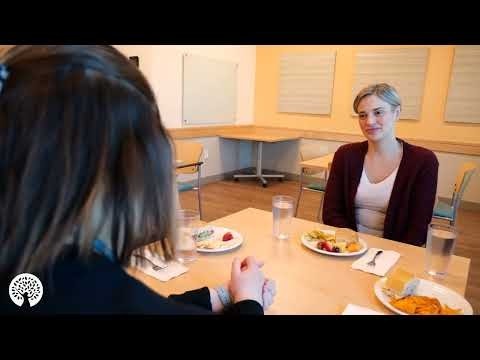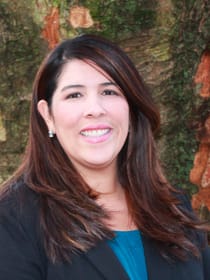Eating Recovery Center Baltimore - 55 Schilling

Location Details
Eating disorder treatment in Baltimore, MD
Located in Hunt Valley, Maryland, just north of Baltimore in beautiful suburban surroundings, Eating Recovery Center (ERC) Baltimore offers residential and outpatient eating disorder treatment for medically stable adults, children and adolescents.
Only 20 minutes from Baltimore City, ERC Baltimore provides a warm, inviting location to help patients feel comfortable in a safe, nurturing environment with upgraded centers and specialized program spaces. With features like a full teaching kitchen and highly experienced nutritional team, patients can work with their treatment team on skills-based practice for meal planning and emotional regulation.
- Trusted by over 20,000 patients and their families
- 87% of former patients agreed that their experience at ERC was helpful
- 91% of parents of former patients would recommend ERC to others in need of services
- Specialized treatment designed by a team of experienced clinicians
ERC Baltimore provides a much-needed higher level of care on the East Coast, focusing on evidence-based interventions, medical support, family involvement and discharge planning to help you experience the freedom of recovery.
Find Recovery with Evidence-Based Therapies

Lighting your way to recover from eating disorders
When you or a loved one need help for an eating disorder, we are here for you. Our compassionate team will do all we can to help you get through this time of crisis. Our residential program provides a highly structured environment, including daytime medical and psychiatric supervision.
Come as you are and be your authentic self.
Learn how to interrupt eating disorder thoughts and behaviors to create a life based on your values.
Get the right support at the right time.
Embrace a compassionate care team who knows your story and is there every step of the way.
Stay connected with your recovery community.
Healing doesn’t end when you leave our program; it’s just the beginning. Stay connected through extensive supportive resources.
Get the right care at the right time.
The residential eating disorder treatment program at ERC Baltimore is designed for patients that need 24-hour support – including continued observation and daytime medical and psychiatric supervision – but a step down from the intensity of medical support and stabilization provided in inpatient programs.
Located in the middle of a vibrant healthcare ecosystem, ERC Baltimore often coordinates care with other hospitals and health systems within the Baltimore metropolitan area including:
- Johns Hopkins
- Greater Baltimore Medical Center (GBMC)
- Sheppard Pratt
- University of Maryland St. Joseph Medical Center
With partial hospitalization and intensive outpatient programs directly across the street, ERC Baltimore’s step-down model of care provides convenient support at every phase of recovery.
“We really stay true to evidence-based treatment, and we ensure all treatment providers are trained for optimal collaboration with patients and families. The family-based treatment model requires the entire team to be involved so that caregivers and loved ones are just as involved in treatment.”
Take a look inside ERC Baltimore.
Meet our expert care team and find out what your day-to-day will look like at ERC Baltimore. Take a look at the welcoming space, see our teaching kitchen in action, and learn more about how you’ll be able to practice the skills you are learning in real time.

Who We Treat
-

Children & Adolescents
We can help guide you and your child on a path to long-lasting change and healing.
-

Adults
We provide eating disorder treatment and mood and anxiety disorder treatment for all genders ages 18 and older.
Struggling with an eating disorder?
One conversation can make all the difference. Connect with us today.
Conditions We Treat
-

Eating Disorders
An eating disorder is a treatable mental illness that includes a number of different symptoms, including extreme emotions, attitudes, and behaviors surrounding weight and food issues.
-

Anorexia
Anorexia nervosa is characterized by an obsessive fear of weight gain and a refusal to maintain a healthy body weight.
-

Atypical Anorexia
You can’t tell if someone has an eating disorder just by looking at them. See how atypical anorexia affects people in a variety of body shapes and sizes.
-

ARFID
ARFID is a lesser known eating disorder that frequently begins as early as infancy or childhood, but adults can also suffer.
-

Binge Eating Disorder
Binge eating disorder is characterized by frequent overeating – at least once a week for three months – combined with a lack of control, intense feelings of distress and several other characteristic behaviors.
-

Bulimia
Bulimia is characterized by patterns of bingeing and purging.
-

Compulsive Overeating
Compulsive overeating can involve binge eating and weight gain, but it can also involve other behaviors.
-

Diabulimia
The term diabulimia is used to describe the diagnosis of an eating disorder in an individual with type 1 diabetes. These patients intentionally misuse insulin for weight control.
-

OSFED
Some eating disorders do not meet all of the diagnostic criteria for specific diagnoses like anorexia nervosa and bulimia nervosa.
-

Orthorexia
Some people go to extremes to “eat clean” at all times. This may lead to a disordered eating pattern known as orthorexia.
Struggling with an eating disorder?
One conversation can make all the difference. Connect with us today.
Specialized ARFID care, tailored for your child
Avoidant/restrictive food intake disorder (ARFID) is more than “picky eating.” It can significantly impact your child’s health, growth and emotional well-being — and your whole family.
ERC Baltimore is home to the nation’s most specialized program for children and teens with ARFID. This one-of-a-kind treatment provides the expert care your child needs to overcome their challenges with food while supporting your family every step of the way.
Setting the standard in ARFID treatment
The care your child will receive is designed specifically to address the unique challenges of ARFID, delivered by experts who have been treating the disorder since before it had a name.
Here’s what sets it apart from traditional eating disorder programs:
- Treatment is tailored to help kids and teens experiencing ARFID.
- Specialized groups encourage kids to try new foods, build social skills and manage anxiety in a safe environment.
- A community of peers with shared experiences provides understanding and support.
- Clinical teams are trained in neurodiversity training to support all kids and teens.
- Families are actively involved in treatment, from meal support to weekly check-ins, to maintain progress at home.
- Optional specialty tracks address co-occurring conditions like trauma and obsessive-compulsive disorder, offering holistic, whole-person care when needed.
- Onsite education support is offered weekdays during the school year to help kids stay on track with school during treatment.
- Nearby housing for families to stay close to loved ones in care.
A program built around ARFID — and your family
ARFID is unique, and so is the care it requires. With the support your child and your family need, you can develop the confidence and tools to overcome ARFID together.
Ready to take the next step? Call 877-825-8584 today. We’ll listen to what your child is going through and guide you to the exact care they need to heal.
Levels of Care Offered
-

Inpatient
Our Inpatient programming is designed to support adults, children and adolescents of all genders who are acutely ill and are experiencing medical and mood instability as a result of their eating disorder.
-

Residential
Within ERC Pathlight's step-down model of care, the Residential eating disorder treatment program as well as the Residential mood & anxiety treatment program offer medically stable patients a highly-structured and supportive 24-hour treatment environment.
-

Partial Hospitalization
Our Partial Hospitalization Program (PHP) offers some of the same intensity and structure of Residential mood, anxiety, and eating disorder treatment while providing additional opportunities to practice recovery outside of the controlled eating disorder treatment environment during evenings at home or in peer-supported apartment communities.
-

On-Site Intensive Outpatient Treatment
Our Intensive Outpatient program is a flexible mood, anxiety, and eating disorder treatment program that allows patients to work, go to school, or care for children during the day and sleep at home at night.
-

Virtual Intensive Outpatient - Eating Recovery At Home
ERC is removing the barriers that can keep patients with anorexia, bulimia, and other eating disorders from receiving treatment. Through telebehavioral health programming, Eating Recovery At Home (our virtual Intensive Outpatient Program) offers the same proven care as our in-person treatment centers.
Struggling with an eating disorder?
One conversation can make all the difference. Connect with us today.
Outpatient eating disorder therapy in Baltimore
ERC Baltimore offers outpatient eating disorder treatment led by a team of expert therapists. Outpatient therapy:
- Typically includes one individual therapy session per week
- Is an ideal fit for patients seeking a lower level of care, including patients transitioning from PHP
- Serves as an important step in the full continuum of eating disorders care, providing accountability, processing and skill-building
Call today to learn more.
Find long-lasting recovery with the experts
All team members at our eating disorder treatment centers are highly trained, understand the challenges of eating disorder recovery and actively engage you or your loved one in the treatment process. Evidence-based interventions are congruent across ERC’s programming, creating a common language from which to approach treatment.
At ERC Baltimore, we can address complex co-occurring eating disorders and mental health concerns, including obsessive-compulsive disorder (OCD) using exposure and response prevention (ERP) and trauma using cognitive processing therapy (CPT).
While in treatment, you’ll be able to work with:
- Psychiatrists and internal medicine physicians
- Psychotherapists and family clinicians
- Registered dietitians and nurses
- Case managers and aftercare coordinators
- Alumni support and other support staff
Benefit from consistency and continuity
Our continuum of care model provides patients with the specific level of support they need at the time they need it.
Looking for a partial hospitalization or intensive outpatient program? You'll find them located directly across the street at 101 Schilling. This convenient arrangement enables patients to step up or step down from various levels of care. The clinical team can also move easily between buildings as patients step up or down from levels of care.
ERC Baltimore’s locations offer multiple levels of care to support individuals at specific stages of recovery and respond to their treatment needs. Given that all our buildings are on the same campus-like environment, we offer a safer, more supportive atmosphere that promotes collaboration and closeness. Frequent communication and coordination with local outpatient community providers helps ensure continuity of care and positive outcomes.

Nutrition Counseling & Education
Through education, support and structure, we offer patients a comprehensive and personalized nutrition approach that safely helps them achieve optimal physical and mental health.
Nutritional rehabilitation at this level of care is overseen by experienced
- Psychiatrists
- Registered dietitians
- Primary care physicians
- Nurses
At ERC Baltimore, we have a full teaching kitchen where all patients participate in cooking classes and food exposures, as well as an on-campus garden.
At ERC Baltimore’s inpatient program, you will typically have three meals and three snacks daily with your peers. As you progress through treatment, you will begin to have meals and snacks off the unit, and / or with family members during outings, cooking group experiences and grocery store tours.
For those interested in specific programming for binge eating disorder (BED), we offer virtual binge eating disorder treatment for adults in the state of Maryland.
Traveling for care? We can help.
Out-of-town patients and their families can receive support with travel arrangements and housing during their stay. ERC Baltimore has an arrangement with the hotel Residence Inn located right across the street: a place where families can stay while loved ones are in treatment. The area also includes various other hotels, and we have an arrangement with Ronald McDonald house for additional housing when needed.
Help for Families Each Step of the Way
Child & adolescent programs
A structured schedule incorporates groups, community meetings and individual therapy to model a recovery-based daily structure. This helps our young patients overcome maladaptive routines, rules and behaviors. The treatment program also focuses on the factors that help maintain eating disorders, recovery skills, and relapse prevention.
ERC Baltimore’s programming includes a yoga instructor that focuses on low-intensity exercises combined with mindfulness. We also offer art and music-based therapy groups to support experiential learning and supplement clinical process groups.
Family programs
At ERC Baltimore, we acknowledge the importance of helping parents, caregivers and families understand how to best support their young loved ones.
We offer an array of resources for families and caregivers rooted in Emotion-Focused Family Therapy (EFFT) and Family-Based Treatment (FBT), including an education series, family therapy sessions and more. Patients and loved ones are also connected with a community outreach liaison for ongoing support after treatment. We invite you to register for one of our interactive family sessions now:
Academic support
Keeping up with schoolwork is an understandable concern for young patients and their caregivers. Our primary focus will be on eating disorder recovery, and we do everything we can to help young patients stay on top of school assignments while in treatment.
With designated time for schoolwork in our residential and PHP levels of care, ERC Bellevue has two education specialists on staff: one certified teacher and one tutor. These professionals communicate regularly with schools and can support 504 and IEP plans. Our compassionate team members continuously work together to prevent disruption to your child’s education.
Take a look inside ERC Baltimore.
Meet our expert care team and find out what your child’s day-to-day will look like at ERC Baltimore. Learn more about our education specialist, see art therapy in action and hear how we support families every step of the way.

Testimonials
It just takes one phone call to get started.
Reaching out for help is an important and brave first step. Give us a call and our compassionate admissions team is here to walk you through the entire process with care, compassion and support. Got a question?
No referral is ever needed for you to access the treatment you need and deserve.
Let us help you with insurance.
When facing a life-threatening eating disorder, you shouldn’t have to worry about how to pay for treatment or the burden of financial expenses. Our experienced team does everything we can to simplify and streamline the insurance and payment process for you: communicating with you at every touchpoint.
Get matched with the exact support you need.
With one conversation, our mental health professionals will help you better understand what you’re going through and what you need.
We will meet you where you are, listen to your story in a therapeutic setting, and match you with the level of support that meets your struggle.
Covered by Most Commercial Insurance Plans
Our patient access team is here to advocate for you. We can help you address financial challenges and work with you to get you the maximum coverage offered by your plan.
Frequently Asked Questions
-
Where is ERC Baltimore located?
ERC Baltimore is in Hunt Valley, Maryland, part of Baltimore County and the Baltimore metropolitan area. The center is just north of the city of Baltimore, around 20 minutes away, in conveniently located suburbs. Partial hospitalization, intensive outpatient and outpatient programs are directly across the street in the same integrated campus.
-
What is the difference between inpatient and residential care?
Our residential eating disorder treatment program is designed for patients that need 24-hour support, including round-the-clock observation with daytime medical and psychiatric supervision. Individuals in the residential program no longer require the same intensity of medical support and stabilization provided in an inpatient program.
-
What type of eating disorder support do you offer once treatment ends?
Extensive aftercare planning conducted by an Aftercare Coordinator helps ensure you have a “plan of action” for continuity of care and maintaining recovery progress; pre-arranged appointments set with an outpatient team experienced in the treatment of eating disorders.
-
What type of eating disorder support is offered for caregivers, family members and friends?
Family members, caregivers and friends are often critical to helping a loved one recover from an eating disorder. Each week, family members take part in family therapy sessions. Visits with family members are easy and convenient since the treatment center is housed in the same building as a hotel. Along with family therapy, family members and caregivers are invited to take part in:
Expert Care for Eating Disorders in Baltimore, MD












Find Virtual Eating Disorder Treatment in Maryland
We offer virtual eating disorder treatment for individuals in Maryland through our Eating Recovery At Home program, originally created in 2016 with the same proven outcomes as our in-person eating disorder treatment programs. Individuals in all cities and towns across Maryland, including the cities listed below, are eligible to participate in Eating Recovery At Home for increased convenience and flexibility.
- Annapolis
- Falls Church
- Frederick
- McClean
- Great Falls
- Tysons
- Arlington
- Fairfax
- Columbia
- Washington, D.C.
- Potomac Falls
- Rockville
- Alexandria
- Ellicott City
- Montgomery County
- Howard County
- Harford County
- Anne Arundel County
Hide Last Child Layout Div
#who-we-treat, #conditions, #levels-of-care javascript
Show Who We Treat, Conditions, Levels of Care












